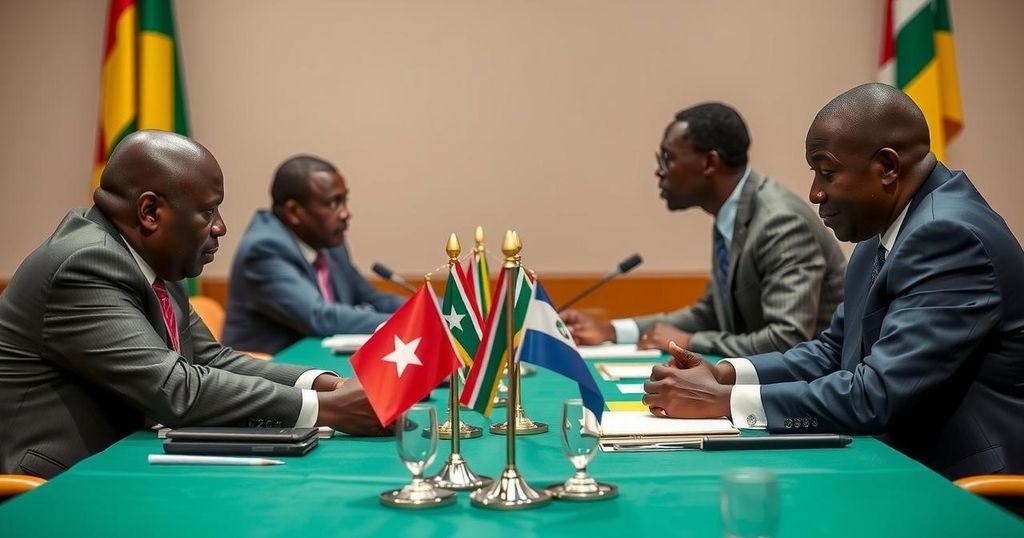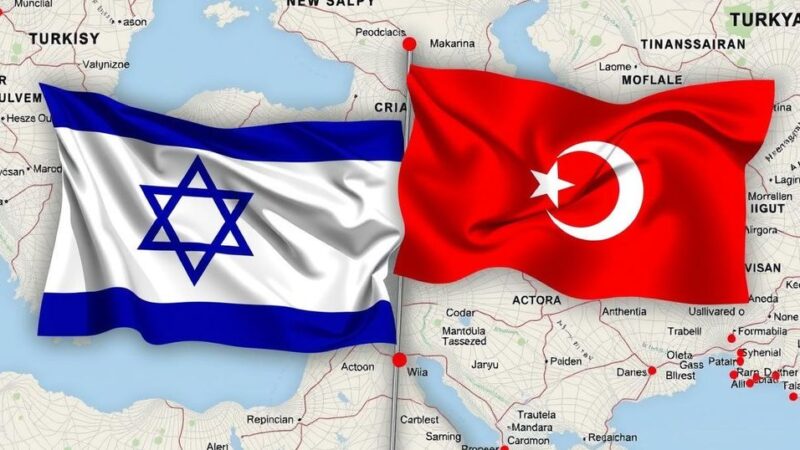South Sudan peace talks resumed in Kenya after a four-month pause caused by the sacking of a government delegation. The ongoing negotiations include the government and opposition groups not part of the 2018 peace agreement, which concluded a civil war. The talks aim to integrate addressing issues faced by holdout groups, although economic challenges persist in the backdrop, delaying electoral processes and complicating peace efforts.
On Wednesday, peace talks pertaining to the ongoing conflict in South Sudan resumed in Kenya after a hiatus of four months, a period marked by the dismissal of a government delegation. The discussions involve the South Sudanese government and various opposition groups, which did not partake in the 2018 agreement that concluded a brutal civil war, resulting in over 400,000 fatalities. Named Tumaini, meaning hope in Swahili, the negotiations seek to foster a renewed commitment to peace.
Initially launched in May, the meetings reached a standstill following the removal of the previous government delegation by President Salva Kiir, leading to delays in appointing a new team that ultimately struggled to reach Nairobi on multiple occasions due to unspecified reasons. President Kiir emphasized that these discussions in Nairobi aim to incorporate the viewpoints of groups that remained outside the original peace agreement of 2018, not to supplant it.
Despite the ongoing efforts for peace, the 2018 agreement’s execution remains incomplete, and impending elections have been postponed from December 2024 to 2026, primarily due to financial constraints impacting voter registration processes, amidst an economic crisis characterized by civil servants not receiving wages for over a year. Furthermore, oil exports, crucial to South Sudan’s economy, face disruptions due to a damaged pipeline in conflict-ridden Sudan.
During the ongoing talks, both parties have expressed concerns regarding a newly enacted law facilitating detentions without warrants, citing human rights violations. Chief mediator Lazarus Sumbeiyo urged the involved parties to finalize unresolved issues promptly. In a statement, Pagan Amum, leader of the South Sudan Opposition Movement Alliance, asserted, “This is not a time to renegotiate what we have already agreed upon – it is important to remember that this is probably the last chance to rescue our country from the total disintegration and collapse into chaos and disorder as the fate of South Sudan now is in our hands.”
Kuol Manyang Juuk, representing the government, reaffirmed the intention to progress from previous agreements rather than commence discussions anew. With the trajectory of South Sudan hanging in the balance, the need for unity and collaboration among parties remains paramount as they strive to navigate the path to peace and stability in the nation.
The resumption of peace talks in South Sudan comes after a prolonged period of negotiations, which have been complicated by political upheaval and economic instability. The backdrop includes a previous civil war that claimed countless lives and left the country in disarray. The 2018 peace agreement sought to end this conflict but has faced challenges in implementation. The current talks aim to address unmet concerns of various factions that did not participate in the earlier negotiations, highlighting the continuing struggle for peace in South Sudan amid severe economic hardships.
In summary, the renewed peace talks in Kenya represent a critical juncture for South Sudan, as various factions aim to resolve ongoing conflicts and establish a sustainable path to governance and stability. The recent upheaval involving the government delegation underscores the complexities of South Sudan’s political landscape. Leaders on both sides recognize the urgency of these discussions, acknowledging the potential consequences of failure while advocating for a collective commitment to previously reached agreements.
Original Source: apnews.com







